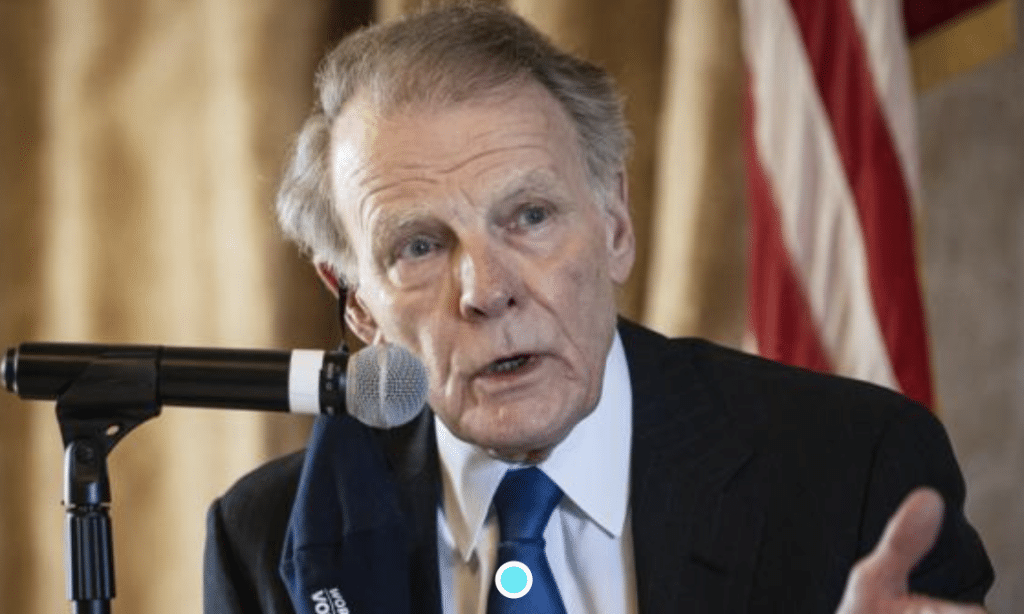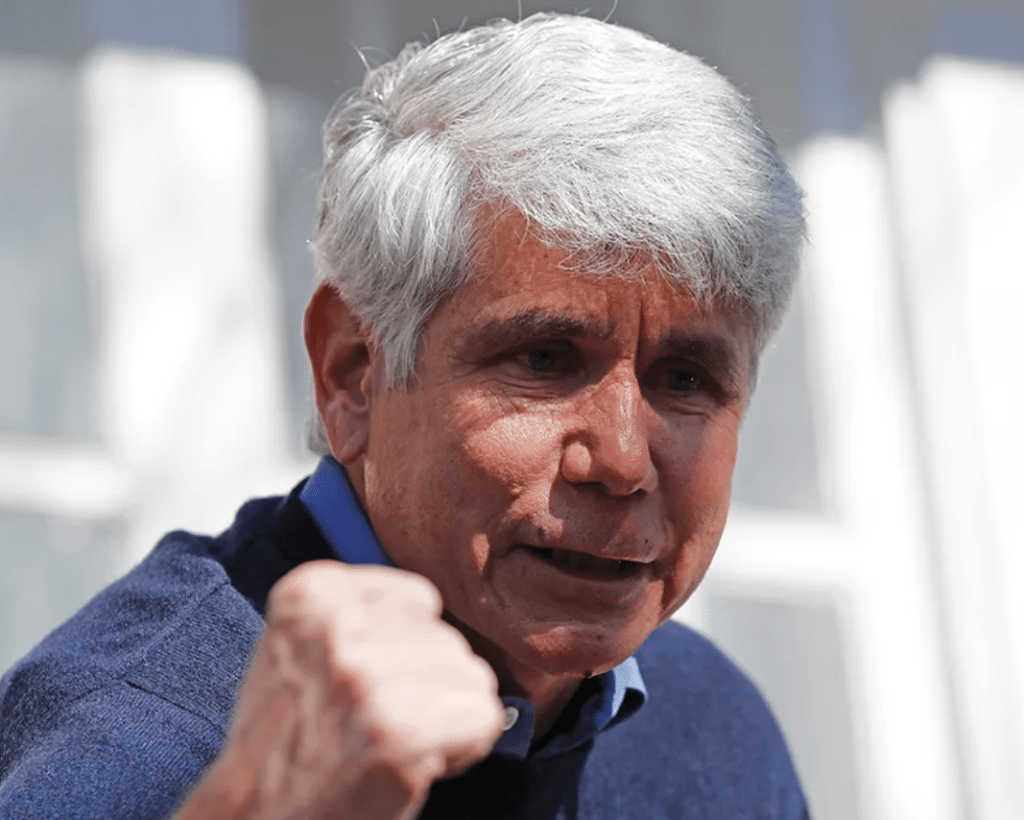The Dishonor Roll is Growing in Chicago
Editorial By Staff Writer David R
Lett’s take a deep dive on Michael Madigan and others from Chicago
Michael Madigan’s political career spanned more than five decades, during which he became one of the most powerful figures in Illinois politics. As Speaker of the Illinois House of Representatives for nearly 40 years, Madigan wielded immense influence over legislation, redistricting, and the state Democratic Party. His tenure was marked by a reputation for strategic maneuvering, tight control over his caucus, and a near-mythical status in Springfield.

Madigan’s rise began in the 1970s, when he was first elected to the Illinois House. He quickly ascended the ranks, becoming Speaker in 1983. Except for a brief two-year Republican interlude in the mid-1990s, he held the gavel until 2021. His dual role as Speaker and chair of the Illinois Democratic Party gave him unmatched leverage in shaping the state’s political landscape.
Throughout his career, Madigan was known for his ability to maintain loyalty among legislators and for his meticulous attention to detail. He was often described as a behind-the-scenes operator who preferred to let others take the spotlight while he pulled the strings. His influence extended beyond the legislature into judicial appointments, local elections, and even the drawing of legislative maps.
Despite his political prowess, Madigan’s career was dogged by allegations of patronage and backroom deals. Critics accused him of fostering a culture of pay-to-play politics, where access and influence were traded for campaign contributions or favors. For years, however, he managed to avoid any formal charges, maintaining a carefully cultivated image of legality and discipline.
That changed in 2020, when federal investigators began to close in. The centerpiece of the case against Madigan was his relationship with Commonwealth Edison (ComEd), Illinois’ largest electric utility. Prosecutors alleged that ComEd paid over $1 million to Madigan’s allies in exchange for favorable legislation. These payments were often disguised as no-show jobs or consulting contracts.
In 2022, Madigan was indicted on 23 counts, including racketeering, bribery, wire fraud, and conspiracy. The charges painted a picture of a sprawling scheme in which Madigan used his public office to enrich himself and his associates. The indictment alleged that he traded legislative support for personal gain, including legal work for his private law firm.
The trial began in late 2024 and lasted four months. It featured more than 60 witnesses, thousands of documents, and hours of wiretapped conversations. Prosecutors argued that Madigan’s actions represented a betrayal of public trust and a continuation of Illinois’ long history of political corruption.
Madigan took the stand in his own defense, a rare move for a defendant in a federal corruption case. He denied any wrongdoing and claimed that his actions were part of routine political operations. However, the judge later ruled that Madigan had lied under oath, further damaging his credibility and increasing the severity of his sentence.
In February 2025, Madigan was convicted on 10 of the 23 counts. The jury deadlocked on six charges and acquitted him on seven others. The convictions included bribery, conspiracy, and wire fraud. The judge noted that Madigan had shown no remorse and had perjured himself during the trial.
On June 13, 2025, Madigan was sentenced to 7½ years in federal prison and fined $2.5 million. The judge, John Robert Blakey, emphasized that Madigan’s crimes were particularly egregious given his position of power and the length of his political career. He described Madigan’s testimony as a “nauseating display of perjury and evasion.”
Madigan’s defense team had argued for probation, citing his age (83) and his role as a caregiver for his wife. They submitted over 200 letters of support and a video plea from his wife. But the judge was unmoved, stating that public officials must be held accountable when they abuse their positions.
The sentencing marked a dramatic fall for a man once considered untouchable in Illinois politics. It also served as a cautionary tale about the dangers of unchecked political power and the corrosive effects of patronage and favoritism.
Meanwhile, the case against Rod Blagojevich, the former governor of Illinois, had already become one of the most infamous political scandals in recent memory. In 2008, Blagojevich was arrested on federal corruption charges, including an attempt to sell the U.S. Senate seat vacated by President-elect Barack Obama.

Blagojevich was caught on FBI wiretaps describing the Senate seat as “fing golden” and saying he wasn’t going to give it up “for fing nothing.” The recordings revealed a governor openly soliciting bribes in exchange for political appointments, campaign contributions, or personal favors.
The scandal rocked Illinois and the nation. Blagojevich was impeached by the Illinois House and removed from office by the state Senate in early 2009. He was later indicted on multiple federal charges, including wire fraud, extortion, and bribery.
His first trial in 2010 ended in a mistrial, with the jury convicting him on only one count of lying to the FBI. A retrial in 2011 resulted in convictions on 17 counts, including those related to the Senate seat scheme. He was sentenced to 14 years in federal prison.
Blagojevich began serving his sentence in 2012. In 2020, President Donald Trump commuted his sentence, citing the length of the punishment and Blagojevich’s remorse. The commutation was controversial, with critics arguing that it undermined efforts to combat political corruption.
Despite their different styles—Madigan’s quiet control versus Blagojevich’s flamboyant bravado—both men became symbols of Illinois’ entrenched political dysfunction. Their downfalls underscored the persistent challenges of reforming a system long plagued by insider deals and ethical lapses.
Together, the Madigan and Blagojevich cases illustrate how power, when left unchecked, can lead even the most seasoned politicians to cross legal and moral boundaries. They also highlight the role of federal prosecutors and investigative journalism in holding public officials accountable.
Another one bites the dust!










